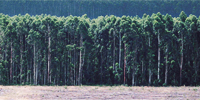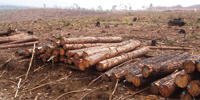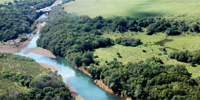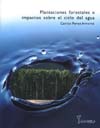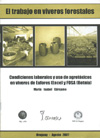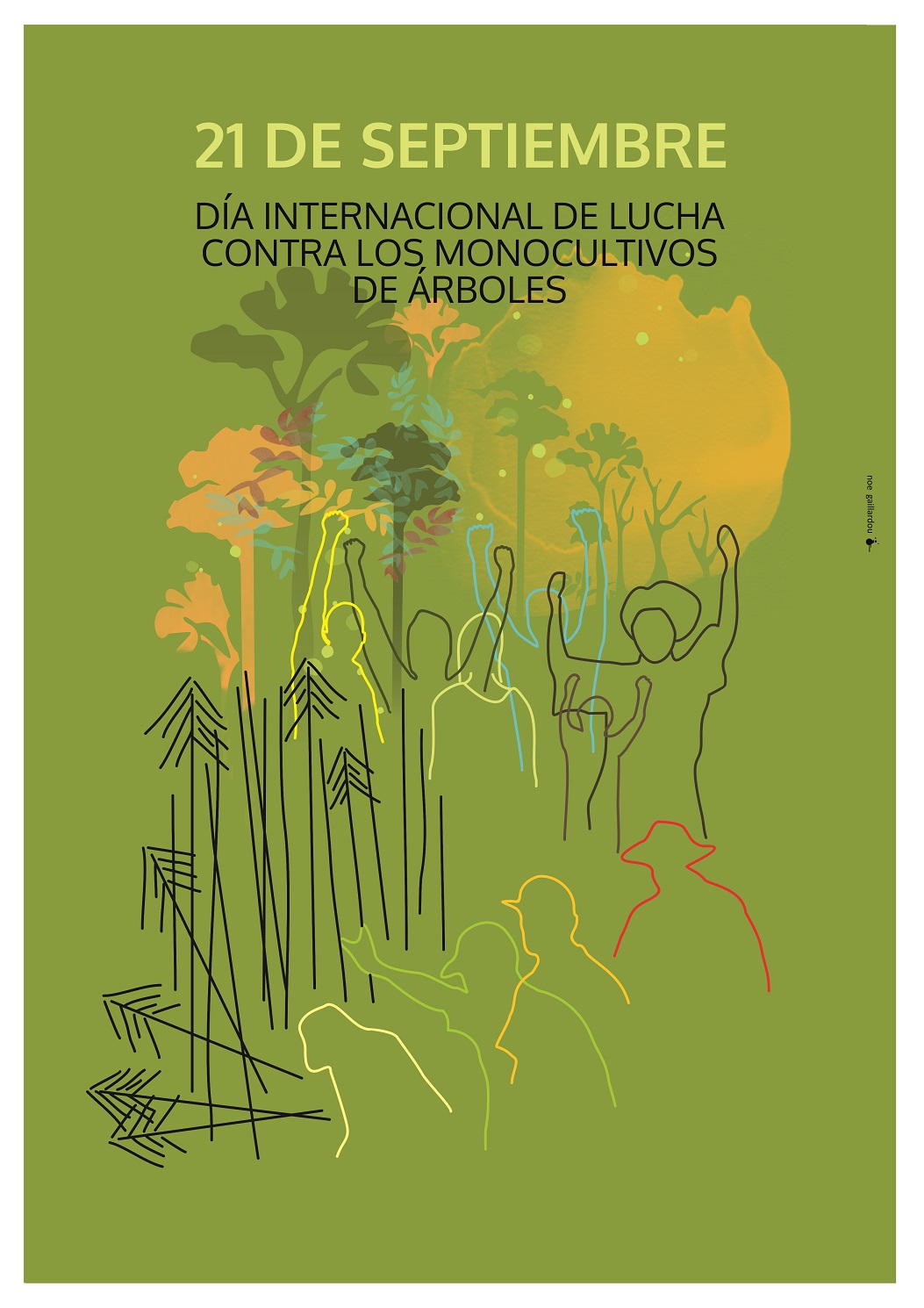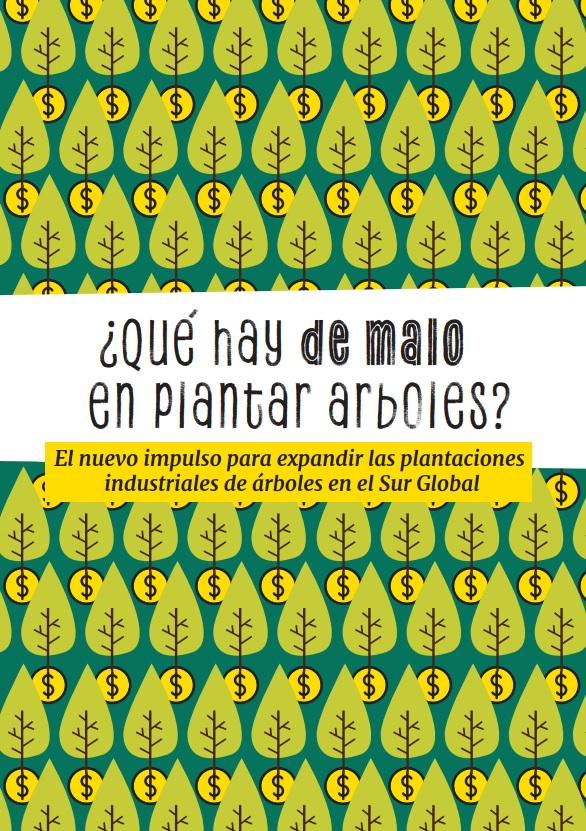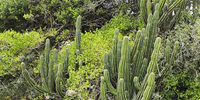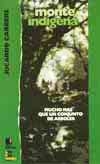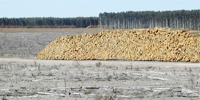To the public national and international opinion
February 26th 2020
QUESTIONING UPM GREENWASHING CAMPAIGN
The undersigned entities and professionals denounce the fraudulent campaign of the Finnish multinational UPM Kymmene, whose main business is the production of cellulose in Uruguay from monoculture plantations of eucalyptus, in which it presents itself as a leading global corporation in the fight against climate change, the defense of biodiversity and the sustainable water management.
Diverse research – presented below briefly and more in detail in the annex attached to this our letter – show that it is false to claim like the UPM does that monoculture tree plantations that replace natural grasslands would favor and expand biodiversity or help mitigate climate change and prevent deforestation or would together with the cellulose plants contribute to sustainable water management.
Recently, UPM announced its incorporation into the “Business Ambition for 1.5 ° C” initiative launched by the United Nations Global Compact. UPM says it will strive to mitigate climate change and create innovative products, committing to reduce carbon dioxide emissions by 65% and to practice sustainable forestry.
At the same time, UPM noted that it is one of the six leading companies worldwide for its actions to mitigate climate risk, prevent deforestation and improve water management. UPM appeared in 2019 in the Triple A List of CDP, an entity financed by companies and governments that gives companies sustainability scores to guide investors. These scores are based on self-reporting and CDP does not evaluate the actual performance of the companies on sustainability issues.
In this way, UPM is developing a new campaign to convince investors, governments and populations of the Global South of the goodness of its projects.
The change of land use in the grasslands characteristic of South America – the Pampa Biome – is associated with the worldwide expansion of monoculture plantations with fast-growing exotic species for cellulose production with greater profitability for companies, but with very high cost for the communities that suffer them.
Testimonies of the negative social and environmental impacts of tree monocultures have been documented for more than 20 years by the World Rainforest Movement (https://wrm.org.uy/browse-by-subject/tree-plantations/).
In addition to the displacement of rural populations, these plantations affect local productions (food sovereignty), soil (acidification and loss of organic matter and minerals, among others) and water (scarcity in areas adjacent to plantations and pollution due to the use of pesticides).
For more than 15 years, scientists from universities in Argentina, Brazil, the United States, the United Kingdom and Uruguay, among other countries, have carried out a series of investigations on the impacts of tree monocultures and cellulose production that demonstrate the falsehood of the UPM propaganda.
We present a list of scientific research confirming the above and attach a dossier with the summary of its results:
A. Monocultures of eucalyptus for cellulose production are worse carbon sinks than grasslands originating in South America. In addition, most of the carbon captured by these trees is released by harvesting them and transforming them into cellulose. As part of its process, biomass is burned and other gases are released into the atmosphere, with the consequent effects on the climate.
A1. Preliminary study of prairies forested with Eucalyptus sp. at the northwestern Uruguayan soils. Carrasco-Letelier, L., Eguren, G., Castiñeira, C., Parra, O., & Panario, D. (2003). https://www.researchgate.net/publication/9054561_Preliminary_study_of_prairies_forested_with_Eucalyptus_sp_at_the_northwestern_Uruguayan_soils/link/5a6b8e48a6fdcc317b159a21/download
A2. Soil organic carbon vs. bulk density following temperate grassland afforestation. Céspedes-Payret, C., Bazzoni, B., Gutiérrez, O., & Panario, D. (2017). Environmental Processes, 4(1), 75–92. https://doi.org/10.1007/s40710-016-0197-4
B. Monoculture plantations of trees irreversibly extract nutrients and minerals from this original ecosystem that took thousands of years to settle. Among its rows of miles of cloned trees, species of exotic fauna proliferate, such as wild boar, which are a plague for local livestock and agriculture.
B1. Patterns and mechanisms of soil acidification in the conversion of grasslands to forests. Jobbágy, E. G., & Jackson, R. B. (2003). Biogeochemistry, 64(2), 205-229. https://www.researchgate.net/publication/228481637_Patterns_and_mechanisms_of_soil_acidification_in_the_conversion_of_grasslands_to_forests
B2. The irruption of new agro-industrial technologies in Uruguay and their environmental impacts on soil, water supply and biodiversity: a review. Céspedes-Payret, C., Piñeiro, G., Achkar, M., Gutiérrez, O., & Panario, D. (2009). International Journal of Environment and Health, 3(2), 175-197. https://doi.org/10.1504/IJENVH.2009.024877
B3. Land use change in a temperate grassland soil: afforestation effects on chemical properties and their ecological and mineralogical implications. Céspedes-Payret, C., Piñeiro, G., Gutiérrez, O., & Panario, D. (2012). Science of the Total Environment, 438, 549-557. https://doi.org/10.1016/j.scitotenv.2012.08.075
B4. The political economy of global tree plantation expansion: a review, Markus Kröger, The Journal of Peasant Studies (2014) https://www.tandfonline.com/doi/abs/10.1080/03066150.2014.890596
B5. Afforestation of savannas: an impending ecological disaster. Fernandes, G. W., Coelho, M. S., Machado, R. B., Ferreira, M. E., Aguiar, L. M. de S., Dirzo, R., Scariot, A., Lopes, C. R. (2016). Natureza & Conservação, 14(2), 146-151. https://doi.org/10.1016/j.ncon.2016.08.002
C. Monocultures of eucalyptus and associated cellulose plants seriously reduce and contaminate the main sources of water in the region.
C1. Hydrological consequences of Eucalyptus afforestation in the Argentine Pampas. Engel, V., Jobbágy, E. G., Stieglitz, M., Williams, M., & Jackson, R. B. (2005). Water Resources Research, 41(10), W10409. https://doi.org/10.1029/2004WR003761
C2. Effects of afforestation on water yield: a global synthesis with implications for policy. Farley, K. A., Jobbágy, E. G., & Jackson, R. B. (2005). Global Change Biology, 11(10), 1565-1576. https://www.researchgate.net/publication/227862602_Effects_of_Afforestation_on_Water_Yield_A_Global_Synthesis_With_Implications_for_Policy
C3. Trading water for carbon with biological carbon sequestration. Jackson, R. B., Jobbágy, E. G., Avissar, R., Roy, S. B., Barrett, D. J., Cook, C. W., Farley, K.A., le Maitre, D.C., Mc Carl, B.A., Murray, B. C. (2005). Science, 310(5756), 1944-1947. https://doi.org/10.1126/science.1119282
C4. Land-use change and water losses: the case of grassland afforestation across a soil textural gradient in central Argentina. Nosetto, M. D., Jobbágy, E. G., & Paruelo, J. M. (2005). Global Change Biology, 11(7), 1101-1117. https://doi.org/10.1111/j.1365-2486.2005.00975.x
C5. Las forestaciones rioplatenses y el agua. Jobbágy, E. G., Nosetto, M. D., Paruelo, J. M., & Piñeiro, G. (2006). Ciencia hoy, 17(95), 12-21. https://www.researchgate.net/publication/265376623_Las_forestaciones_rioplatenses_y_el_agua
C6. Síntesis de los efectos ambientales de las plantas de celulosa y del modelo forestal en Uruguay. Panario, D., Mazzeo, N., Eguren, G., Rodríguez, C., Altesor, A., Cayssials, R., & Achkar, M. (2006). https://doi.org/10.13140/RG.2.1.2929.0483
C7. Stream acidification and base cation losses with grassland afforestation. Farley, K. A., Piñeiro, G., Palmer, S. M., Jobbágy, E. G., & Jackson, R. B. (2008). Water Resources Research, 44(7), W00A03. https://doi.org/10.1029/2007WR006659
D. The installation of pulp agribusiness in the Southern Cone of America generates conflicting social and political transformations in the region.
D1. Ecosystem services and tree plantations in Uruguay: A reply to Vihervaara et al. Paruelo, J. M. (2012). Forest Policy and Economics, 22, 85-88. https://doi.org/10.1016/j.forpol.2012.04.005
D2. In the shadows of social licence to operate: Untold investment grievances in Latin America, Maria Ehrnström-Fuentes and Markus Kröger, Journal of Cleaner Production (2016). https://www.sciencedirect.com/science/article/pii/S0959652616314536
D3. Birthing extractivism: The role of the state in forestry politics and development in Uruguay, Maria Ehrnström-Fuentes and MarkusKröger, Journal of Rural Studies (2017). https://www.sciencedirect.com/science/article/abs/pii/S0743016717305272
D4. Confronting extractivism – the role of local struggles in the (un)making of place, Maria Ehrnström-Fuentes, Emerald Insight (2019). https://www.emerald.com/insight/search?q=confronting+extractivism&showAll=true
————————————————————
For all the above, monocultures of exotic trees for the production of cellulose in substitution of natural grasslands are not a model of sustainable development as the agroforestry industry maintains. On the contrary, this system leads to irreversible degradation of soils and waters and initiates desertification processes as they are already being registered in Brazil.
The international sustainability rankings prepared by entities such as CDP are used by UPM to deploy propaganda actions that justify its expansion in the Global South outsourcing pollution and greenhouse emissions to the poorest regions of the world. The promises of UPM are nothing more than a ‘greenwashing’ to improve the image of the company in the local and worldwide spheres.
We urge international organizations, governments and citizens to vehemently reject the fraudulent UPM campaign.
Signatures follow
Uruguayan organizations
Coordinación Nacional contra UPM
Comisión Nacional de Defensa del Agua y la Vida
Movimiento por un Uruguay Sustentable (MOVUS)
No al tren de UPM
Asamblea por el Agua de Santa Lucía
Asociación Ambientalista de Salto
Movimiento por la Tierra
Grupo Guayubira
Mesa Nacional de Colonos
Colectivo Ecofeminista Dafnias
REDES/Amigos de la Tierra Uruguay
Maldonado por la Tierra y el Agua
Asociación Uruguaya de Guardaparques
Fridays for Future Uruguay
Consejo de la Nación Charrúa (CONACHA)
Comisión Rivera por la vida sustentable y el agua
RAPAL Uruguay
Asociación de Trabajadores Civiles de los Diques del Estado (ATCDE)
Plenario intersindical social María Romana – La Paloma, Rocha
Diario barrial La Bicicleta
Colectivo Ñangapiré, San Gregorio de Polanco
Ecofeminismo Rio Negro
Partidos por el Medio, San Gregorio de Polanco
Movimiento de Protección Ambiental de Sarandí del Yí
Vivero Atrapasueños, San Gregorio de Polanco
Agrupación Motoquera Cicatriz Uruguay
Taller del arte-insano, San Gregorio de Polanco
Periódico La Fragua
Redes Ecologistas
Clan Choñik (Indígenas Charrúas)
Paysandú Nuestro
Grupo Ecológico Naturista Sanducero / GENSA de Paysandú
Centro de Promoción y Defensa de Derechos Humanos
Finnish organizations
Friends of the Landless, Finland
Friends of the Earth Finland
New Wind Association
Emmaus Aurinkotehdas ry
Katajamäki ry
Endorsements by International organizations
World Rainforest Movement (WRM)
Acción Ecológica, Ecuador
Friends of the Earth Argentina
Guardianes del Iberá, Argentina
FASE/ES, Brasil
Global Justice Ecology Project
GE Free NZ in Food and Environment, New Zeland
RECOMA – Latin American Network against Monoculture Tree Plantations
Organización BIOS, Argentina
Unidad de Vinculación Ecologista – Fundación La Hendija, Paraná, Entre Ríos, Argentina
Asociación Argentina de Abogados Ambientalistas (AAdeAA)
Otros Mundos Chiapas/Friends of the Earth México
OLCA – Observatorio Latinoamericano de Conflictos Ambientales, Chile
Corporate Europe Observatory (CEO)
The Campaign to Stop GE Trees, International
NGO Buenos Aires Sostenible, Argentina

